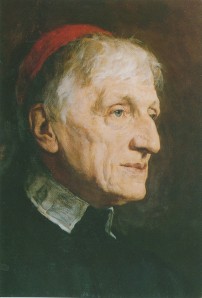The Revd Michael Gollop SSC, an Anglican priest in the Church in Wales, comments on the donation of £1m to the Personal Ordinariate of Our Lady of Walsingham by the Confraternity of the Blessed Sacrament:
I hesitate to comment on the internal affairs of any organisation, but as a member of the C.B.S. and an Anglican, although, of course, continuing to explore the idea of the Ordinariate, I do have an interest in what is going on.
So perhaps we should ask a few questions of those who think the C.B.S. Trustees’ decision to contribute to the funds of the Ordinariate is “an outstanding disgrace.” In whose best interests is it that the Ordinariate should not receive financial support in this way?
It is still the most likely outcome, given recent history, that the attempt to establish any kind of long-term and enduring episcopal provision for ‘orthodox’ Anglo-Catholics within the Church of England will fail.
Even if a compromise is reached, what will be the prospects of the long war of attrition in which we have been involved – on the losing side – for a generation, actually coming to a peaceful resolution?
It is simply not realistic even to hope that anything other than a temporary truce will be reached with those who are intent on driving Anglicanism in an ever more liberal protestant direction.
What then will happen to the assets of the Confraternity? Is it desirable that they should fall into the hands of Affirming Catholicism and its allies within the Church of England?
The change in the C.B.S. membership rules is to be welcomed; we are now in a entirely new era in terms of “Catholic” ecumenism. Many of us now believe that only through the Ordinariate – only through full communion with the Successor of Peter – will it be possible to safeguard the aims and objectives of C.B.S. and indeed, any orthodox Anglo-Catholic tradition at all. The sceptics choose to ignore, when they doubt the possibility of a repatriated Anglican or Anglo-Catholic tradition within the Catholic Church, the fact that this ‘distinctive patrimony’ will almost certainly have ceased to exist within Anglicanism itself within a generation.
If we are inclined to question that, we only need to visit (if you can get past the locked doors) any of the large and increasing number of former Anglo-Catholic parish churches up and down the country whose tabernacles and aumbries stand empty, whose lamps have been extinguished, their eucharistic vestments unused. And that’s not to mention those places where, courtesy of the synodical process in which some are still inclined to place their trust, sacramental uncertainty is now the order of the day.
Perhaps it’s time for those who seem to be suffering from a particularly unpleasant kind of visceral anti-Romanism to wake up and smell the coffee; or, at the very least, to spell out some realistic plans and hopes for the future that are not dependent for their success on the shifting sands of contemporary Anglican theological fashion.














